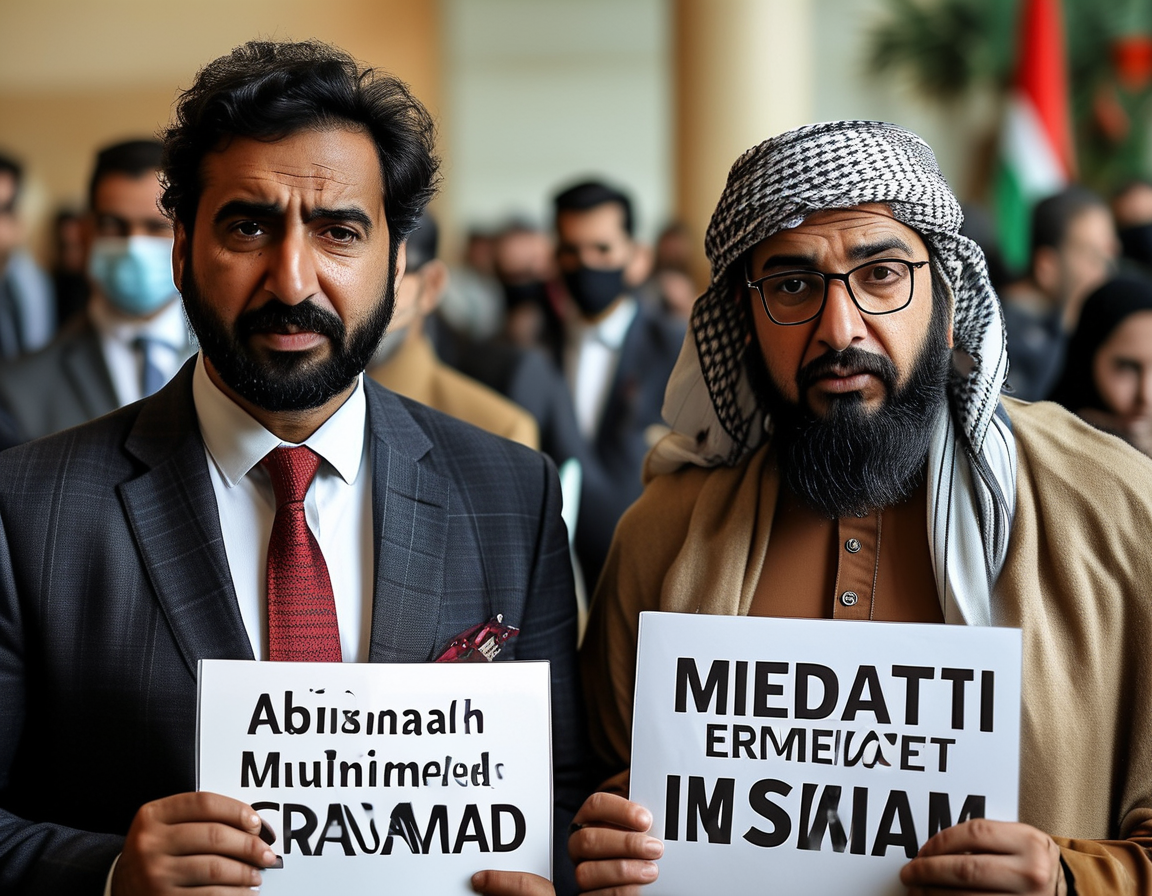
In a surprising twist, two British Labour MPs have been denied entry to Israel while attempting to travel to the West Bank. Abtisam Mohamed and Yuan Yang expressed their shock at the refusal, insisting that it was crucial for them to witness the situation in the occupied Palestinian territory firsthand. Reports from Israeli authorities labeled their intentions as ‘spreading hate speech,’ a claim that raises significant questions about free speech and diplomacy.
The controversy erupted after the MPs, along with their aides, traveled from London Luton Airport to Israel. Upon arrival, they were immediately questioned by immigration officials who cited concerns that their visit aimed to ‘document the security forces’ rather than genuinely engage in dialogue. This encounter stirred emotions, as both MPs have been vocal advocates for Palestinian rights in the British Parliament, raising issues that resonate deeply within their communities.
Foreign Secretary David Lammy swiftly criticized the Israeli authorities’ decision, labeling it ‘unacceptable and counterproductive.’ This move has been viewed by many as a troubling precedent. After all, should parliamentarians not have the liberty to travel freely, especially to regions where humanitarian concerns are pressing?
Interestingly, the response from Conservative leader Kemi Badenoch differed dramatically. She highlighted Israel’s right to control its borders, noting that not every country may welcome all MPs, especially if perceived as hostile. But is that the right approach? Should the political affiliation of these MPs have an impact on their freedom to travel?
The tension around this incident is palpable. Only days ago, both Mohamed and Yang established themselves as key figures in discussions on the Israel-Palestine conflict. They have made headlines with their calls for bans on certain goods from Israeli settlements in Palestinian territories and have criticized the withholding of humanitarian aid from Gaza. Such actions threaten the deeply intertwined relationship between countries and the representatives they send abroad.
Upon being denied entry, the Israeli immigration authority claimed that the MPs had been actively involved in promoting sanctions against Israeli ministers and had accused Israel of misrepresentation. This reasoning does not sit well with many experts who argue that criticism of a state’s actions does not constitute hate speech. Can transforming criticisms into allegations of hate speech effectively silence honest discourse?
After being detained for mere hours, the MPs were allowed to leave Israel, their return flight funded by the Israeli government. However, they refused the offer of hotel accommodations during their enforced stay, a gesture that resonates with their position as advocates for Palestinian rights. It underscores a commitment that remains undeterred by bureaucratic disputes.
Both MPs issued a joint statement highlighting their frustration. They emphasized that parliamentarians should be free to express their views without fear of being targeted or silenced. Is this not a fundamental principle of democracy? The ability to speak truthfully and advocate for those who often go unheard is essential in any functioning society.
Political ramifications of this incident are far-reaching. As Israel conducts ongoing operations in Gaza, public sentiment in the UK is divided. Many are calling for a more measured and humane approach to the Israel-Palestine conflict. Protests have erupted, and the violence continues to rise in both Gaza and the West Bank. With hundreds of deaths reported, the question echoes: how long can this cycle of violence persist without international intervention or dialogue?
The backdrop of the Israeli-Palestinian conflict complicates the global response to situations like this. Many observers note a growing frustration among global leaders regarding the perception of Israeli government actions. Should there be a higher standard applied to nations upholding democratic principles? While some leaders, like Lammy, push for peace and resolutions, others appear to reinforce divisions.
In this tense political climate, the roles of MPs like Mohamed and Yang are more vital than ever. Their experiences underscore the reality that human rights are often at the mercy of political maneuvering, a troubling thought for anyone concerned with global justice. Can the voices of dissent be muted while the truth remains overshadowed? The situations continue to evolve, and this story is far from finished.
Leave a Comment